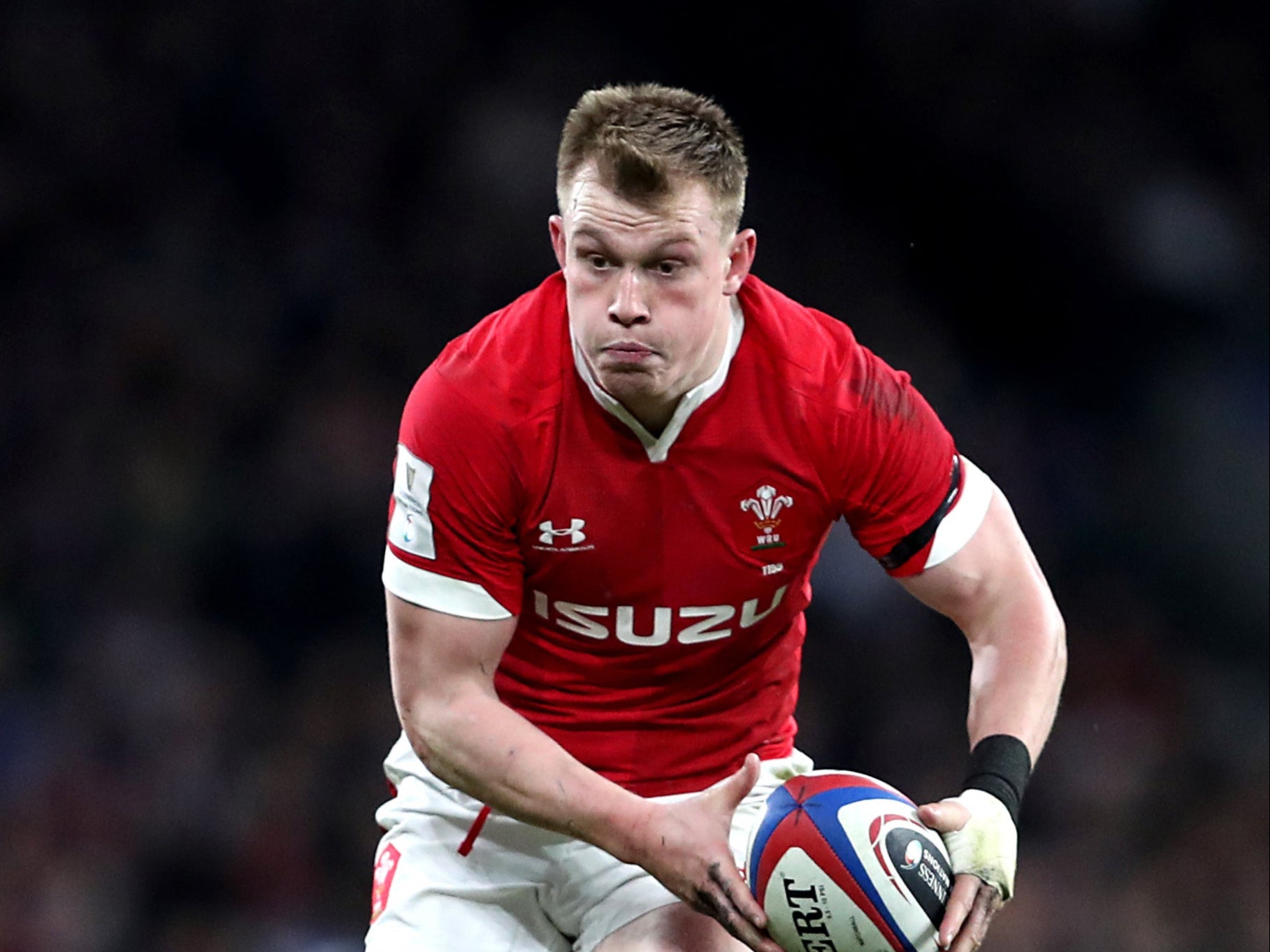Injury-hit Wales ‘desperate’ to end autumn campaign on a high, Nick Tompkins claims
Wales conclude their demanding autumn series against the Wallabies in Cardiff

Your support helps us to tell the story
From reproductive rights to climate change to Big Tech, The Independent is on the ground when the story is developing. Whether it's investigating the financials of Elon Musk's pro-Trump PAC or producing our latest documentary, 'The A Word', which shines a light on the American women fighting for reproductive rights, we know how important it is to parse out the facts from the messaging.
At such a critical moment in US history, we need reporters on the ground. Your donation allows us to keep sending journalists to speak to both sides of the story.
The Independent is trusted by Americans across the entire political spectrum. And unlike many other quality news outlets, we choose not to lock Americans out of our reporting and analysis with paywalls. We believe quality journalism should be available to everyone, paid for by those who can afford it.
Your support makes all the difference.Nick Tompkins has underlined Wales’ desperation to “finish on a high” when an injury-hit Autumn Nations Series campaign concludes against Australia.
Wales host the Wallabies on Saturday after being accompanied throughout the autumn by repeated injury setbacks.
Their hefty list of absentees includes British and Irish Lions like Alun Wyn Jones, Ken Owens, Ross Moriarty, Taulupe Faletau, Justin Tipuric, Josh Navidi and George North.
And with head coach Wayne Pivac due to name his starting line-up on Thursday, prop WillGriff John and lock Will Rowlands have been released back to their regions after suffering head knocks, while Tomas Francis (concussion), Josh Adams (calf) and Aaron Wainwright (shoulder) remain under assessment.
Pivac has used close to 40 players across Tests against New Zealand, South Africa and Fiji, and more changes are expected for the Wallabies’ Cardiff visit.
But Wales’ situation has also seen the emergence of players such as flanker Taine Basham and lock Christ Tshiunza, while Basham’s back-row colleague Ellis Jenkins has made an impressive return following a three-year absence from international rugby due to injury.
Wales and Saracens centre Tompkins said: “It’s difficult as you don’t have those settled leaders you have had in the past, so others have had to step up, and have been doing so brilliantly in my opinion.
I have been really impressed with the leadership and communication
“These stalwarts who have been here a long time eventually are going to get older and it’s going to have to be passed down.
“What you have seen is that transition, and it is good to have that exposure.
“There might be some teething problems, but so far I have been really impressed with the leadership and communication going around.
“Obviously, you want those boys back as what they add is immeasurable, but it’s nice to see other lads stepping up too.”
With Wales less than two years out from their next World Cup campaign, Pivac arguably now has more selection depth than at any time during his two-year reign – especially when everyone is fit.
“We desperately want to finish on a high,” Tompkins added.
“It shows that if there is depth like that, it’s pushing players that maybe would be in the team harder, so it is only going to get better for the national team and the squad.
“I understand fans might be frustrated at the games, but other than the New Zealand one the others have been pretty close and been there to win – especially the South Africa game, which could have been flipped on its head.”
Wales have won their last two encounters against Australia, including a pivotal 2019 World Cup pool victory, after a run of 13 successive defeats in the fixture.
And success on Saturday would send them into the start of a Six Nations title defence next February with spirits high.
“They play free-flowing rugby, they work hard and move the ball a lot, so it is going to be a lot of running and a lot of the ball on the field,” Tompkins said of Australia’s challenge.
“I feel like we have had different challenges every week. New Zealand were fairly open, then you have South Africa, where it is physical.
“And you have the Fijian challenge, which is also physical, but they can offload and have a bag of tricks. It’s brilliant because you don’t get those tests in Premiership rugby or against other teams.”
Join our commenting forum
Join thought-provoking conversations, follow other Independent readers and see their replies
Comments